#Rosi Braidotti
Text

Becoming Woman: Or Sexual Difference Revisited by Rosi Braidotti
#desire and yearning for interconnections with others....#i almost teared up#rosi braidotti#gilles deleuze#on desire#on the body#on embodiment#my uploads
29 notes
·
View notes
Text
BY WAY OF NOMADISM
The nomad does not stand for homelessness, or compulsive displacement; It is rather a figuration for the kind of subject who has rel inquished all idea, desire, or nostalgia for fixity. This figuration expresses the desire for an identity made of transitions, successive shifts, and coordinated changes, without and against an essential unity. The nomadic subject, however, is not altogether devoid of unity; his/her mode is one of definite, seasonal patterns of movement through rather fixed routes. It is a cohesion engendered by repetitions, cyclical moves, rhythmical displacement. ln this respect, I shall take the nomad as the prototype of the "man or woman of ideas" ; as Deleuze put it, the point of being an intellectual nomad is about crossing boundaries, about the act of going, regardless of the destination. "The life of the nomad is the intermezzo ... He is a vector of deterritorial ization."
The nomad enacts transitions without a teleological purpose; Deleuze also gives as an example of this nomadic mode the figuration the "rhizome." The rhizome is a root that grows underground, sideways; Deleuze plays it against the linear roots of trees. By extension, it is "as if" the rh izomatic mode expressed a nonphallogocentric way of thinking: secret, lateral, spreading, as opposed to the visible, vertical ramifications of Western trees of knowledge. By extension, the rhizome stands for a nomadic political ontology that, not unlike Donna Haraway's "cyborg" (see "Re-figuring the Subject"), provides movable foundations for a post-human ist view of subjectivity. Nomadic consciousness is a form of political resistance to hegemonic and exclusionary views of subjectivity.
Rosi Braidotti
#nomad#nomadiclife#nomadicsubject#Deleuze#rhizome#deterritorialization#posthumanism#politicalresistance#subjectivity#identity#embodiment#Rosi Braidotti
12 notes
·
View notes
Text
Some thoughts on the phenomenon of what I have taken to calling "Savior Syndrome" - a thought groove instilled in us by religion and culture and expanded into activist/movement spaces. Think through this with me?
#anthropocene#apocalypse#apocalytpticism#capitalism#Chthulhucene#climate change#Donna Haraway#doomerism#existentialism#fascism#Frank Kermode#global weirding#hopium#literary theory#political strongman myth#religion#renewable energy#Rosi Braidotti#saviour syndrome#silver bullet#work in progress#blogger#blog post#scholar#independent scholar#scholarship
3 notes
·
View notes
Text
The politics of location refers to a way of making sense of diversity among women within the category of 'sexual difference' understood as the binary opposite of the phallogocentric subject. In feminism, these ideas are coupled with that of epistemological and political accountability seen as the practice that consists in unveiling the power locations which one inevitably inhabits as the site of one's identity. The practice of accountability (for one's embodied and embedded locations) as a relational, collective activity of undoing power differentials is linked to two crucial notions: memory and narratives.
They activate the process of putting into words, that is to say bringing into symbolic representation, that which by definition escapes consciousness.
A 'location', in fact, is not a self-appointed and self-designed subject-position. It is a collectively shared and constructed, jointly occupied spatio-temporal territory. A great deal of our location, in other words, escapes self-scrutiny because it is so familiar, so close, that one does not even see it.
The 'politics of location' consequently refers to a process of consciousness-raising that requires a political awakening (Grewal and Kaplan 1994) and hence the intervention of others. 'Politics of locations' are cartographies of power which rest on a form of self-criticism, a critical, genealogical self-narrative; they are relational and outside-directed. This means that 'embodied' accounts illuminate and transform our knowledge of ourselves and of the world.
0 notes
Text
My Tumblr Fandom
I think I finally figured out my Tumblr fandom! I really love scholars and scholarship and spend a lot of time browsing Google Scholar. I especially love historians of all stripes and critical theorists. Also some superstars like Rachel Armstrong, Rosi Braidotti, and Tim Ingold. I'm not a scholar but read a lot of scholarship. So, when I find some scholarship that catches my eye I'll post it here. I'll try to tilt toward open source but I'm sure some restricted access works will make their way into the mix.
0 notes
Text
“We think with the entire body, or rather, we have to acknowledge the embodiment of the brain, and the embrainment of the body.”
– Rosi Braidotti, Anthropocene Feminism
0 notes
Text


This morning I'm working on my thesis from home, which means I'm reading Posthuman Knowledge by Rosi Braidotti in my pajamas.
#study#studyblr#studygram#books#bookblr#studyspo#study motivation#book#lounge wear#work from home#oysho
8 notes
·
View notes
Text
@quarkfcker asked me to compile a list of my favorite works of critical theory - here you go! if anyone is interested in the titles i’ll try to find links later (i’m currently stuck in bed with an endometriosis flare up and posting this from my phone lol)
Susan Sontag - Illness as Metaphor (deals critically with attaching morality to health; in one of my favorite sections Sontag discusses the vocabulary around getting better - “fighting” cancer, “beating” a disease, etc)
Cassie Pedersen - “Encountering Trauma ‘Too Soon’ and ‘Too Late’: Caruth, Laplanche, and the Freudian Nachträglichkeit” in Topography of Trauma: Fissures, Disruptions, and Transfigurations (Deconstruction of Freud’s notion that trauma is time-based and only recurrent after the action)
Judith Butler - Gender Trouble (one of my favs forever)
Eve Sedgewick - “Epistemology of the Closet” and “Between Men” (Between Men especially)
I would try very hard to muscle through a little bit of Jacques Lacan just to understand the concept of the Other. It’s not gonna be easy or fun though.
Sigmund Freud - “Three Essays on the Theory of Sexuality” (I know I know boo we hate your pussy Sigmund but I think it’s important to read Freud so you can have a leg to stand on when you’re arguing against him. He also wasn’t wrong all the time, and a lot of his theory gets picked up by feminist scholars, especially these essays. I think often it’s a matter of needing someone who wasn’t a misogynist to contextualize his work.)
Edward Saïd - Orientalism
Frantz Fanon - Black Skin, White Masks and The Wretched of the Earth (both are postcolonialist theory. Fanon is a huge name in poco that you should know.)
Louis Althusser - “Ideology and Ideological State Apparatuses” (don’t fuck with the working class etc. This one gives you cool and smart-sounding words like The Superstructure.)
Rosi Braidotti - The Posthuman (Good way to dip your toes into the never ending pool of posthumanism.)
Deleuze and Guattari are interesting but I would watch some Youtube videos explaining their work rather than just reading them because it is not brain friendly to me. Check out “The Body without Organs” and “Rhizomes” specifically. However be mindful that reading firsthand is always a good start to understanding, and videos should be supplemental.
Walter Pater and Matthew Arnold are dear to me because I’m a Romantic/Victorian scholar but if you’re not then you probably won’t get as much out of them. I still think Arnold’s Stones of Venice and Pater’s Studies in the History of the Renaissance are good foundational reads to understand a lot of the basis of art and criticism today.
Sigmund Freud (again) - “The Uncanny”
Zora Neale Hurston is incredible and a good name to keep in your pocket. She was a Black anthropologist and a lot of her work is deeply astoundingly moving.
FUCK SIMONE DE BEAUVOIR
Roland Barthes - “Death of the Author” (this is required reading for everyone.)
Peruse a good bit of Foucault.
Jacques Derrida - “Spectres of Marx,” “Hauntology,” etc. (I LOVE DERRIDA!!!! I’d definitely read an introduction to deconstruction first.)
Toni Morrison - “Unspeakable Things Unspoken: The Afro-American Presence in American Literature” (you should already be reading Toni Morrison.)
Sandra M. Gilbert and Susan Gubar - The Madwoman in the Attic (Loove this one. Feminist reading of Victorian literature.)
Hélène Cixous is a good name to know and have in your filing cabinet, as is Julia Kristeva.
Any and all bell hooks you can find, especially “Postmodern Blackness” and Feminism is for Everyone. If you’re planning on being anywhere near the sphere of education, check out Teaching to Transgress.
Jack Halberstam - “Female Masculinity” (Butchness and how it differs from male masculinity)
Rob Nixon - “Slow Violence and the Environmentalism of the Poor”
E. Ann Kaplan - Trauma Culture: The Politics of Terror and Loss in Media and Literature (connection between the individual and cultural trauma)
18 notes
·
View notes
Photo



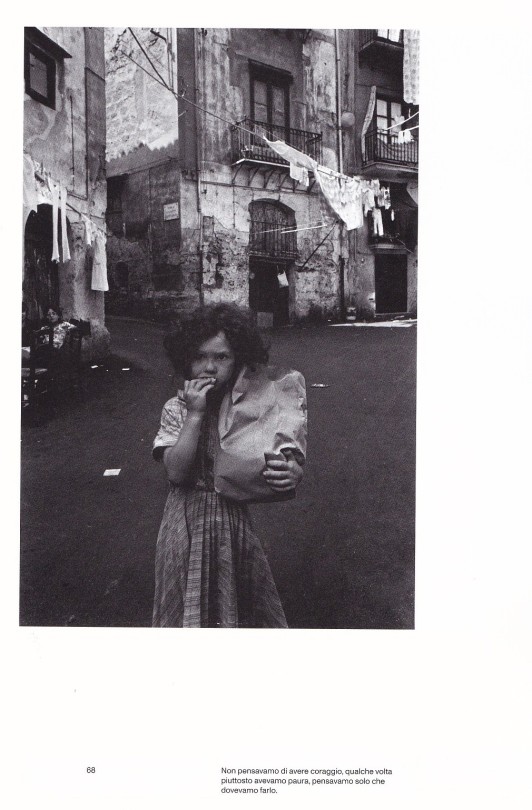

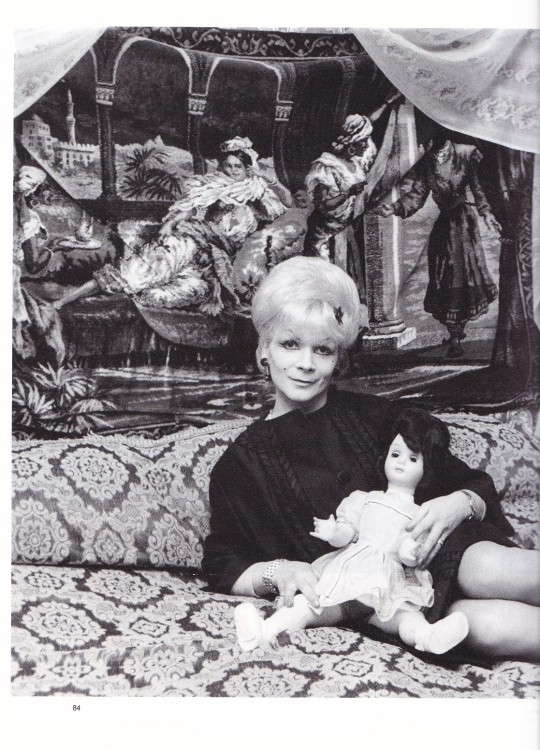
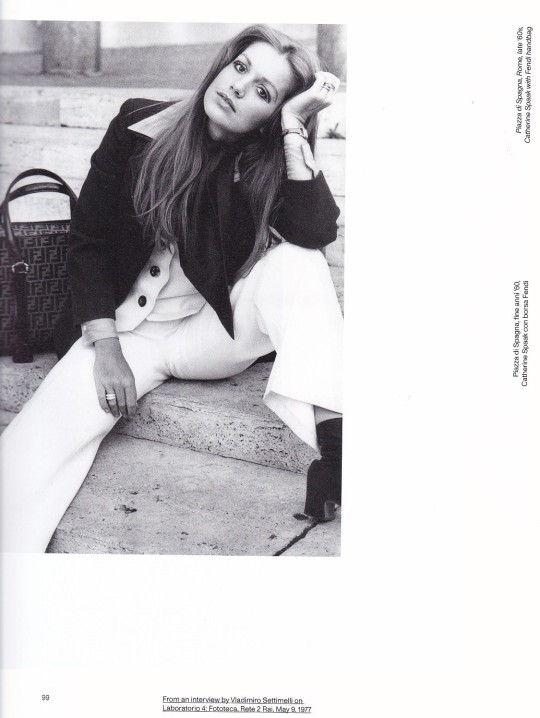


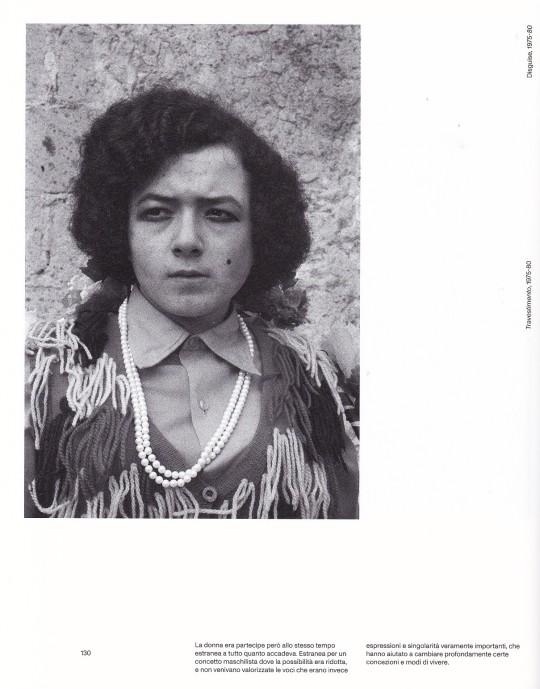
Soggetto nomade
Agosti Battaglia Carmi Catalano Russo
Identità femminile attraverso gli scatti di cinque fotografe italiane 1965 1985
Postfazione di Rosi Braidotti. Introduzione di Cristiana Perrela e Elena Magini.
Produzioni Nero, Roma 2020, 176 pagine, brossura, 22 x 26,3 cm, ISBN 9788880560760
euro 25,00
email if you want to buy [email protected]
"Soggetto nomade" raccoglie in un unico volume gli scatti di cinque fotografe italiane realizzati tra la metà degli anni Sessanta e gli anni Ottanta, che restituiscono da angolazioni diverse il modo in cui la soggettività femminile è vissuta, rappresentata, interpretata in un periodo di grande cambiamento sociale per l'Italia. Anni di transizione dalla radicalità politica all'edonismo, anni di piombo ma anche anni di grande partecipazione e conquiste civili, dovute principalmente proprio alle donne, e alle battaglie femministe. Una riflessione sull'identità e sulla sua rappresentazione che prende le mosse dai ritratti dei travestiti di Genova di Lisetta Carmi (Genova, 1924), dove la femminilità è un'aspirazione, e si declina attraverso le immagini di attrici, scrittrici e artiste di Elisabetta Catalano (Roma, 1941-2015), gli scatti sul movimento femminista di Paola Agosti (Torino, 1947), le donne e le bambine di una Sicilia sfigurata dalla mafia di Letizia Battaglia (Palermo, 1935) e infine gli uomini che per un giorno assumono l'identità femminile nel carnevale di piccoli centri della Campania esplorati da Marialba Russo (Napoli, 1947).
orders to: [email protected]
twitter: @fashionbooksmi
flickr: fashionbooksmilano
instagram: fashionbooksmilano
tumblr: fashionbooksmilano
11/02/23
#Soggetto nomade#Lisetta Carmi#Elisabetta Catalano#Paola Agosti#Letizia Battaglia#Marialba Russo#photography books#anni 60 80#soggettività femminile#Lina Wertmuller#Natalia Aspesi#libri fotografia#fashionbooksmilano
19 notes
·
View notes
Text

rosi braidotti on simone de beauvoir
#simone de beauvoir#rosi braidotti#on masculinity#on femininity#on embodiment#on immanence#on transcendence#my uploads#pink eroticism
12 notes
·
View notes
Photo
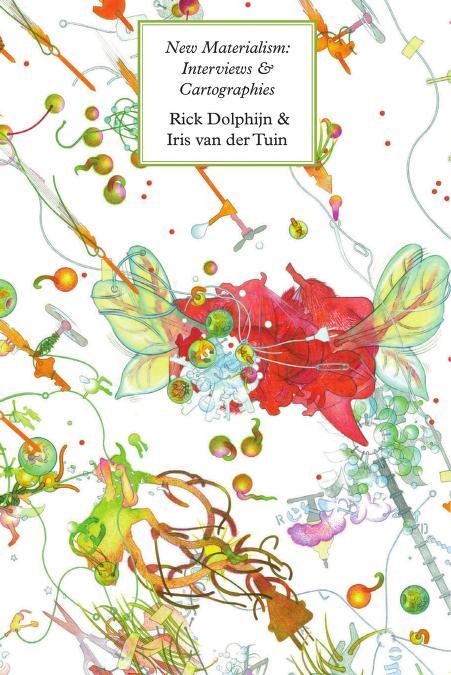
https://archive.org/details/NewMaterialism/mode/2up
This book is the first monograph on the theme of “new materialism,” an emerging trend in 21st century thought that has already left its mark in such fields as philosophy, cultural theory, feminism, science studies, and the arts. The first part of the book contains elaborate interviews with some of the most prominent new materialist scholars of today: Rosi Braidotti, Manuel DeLanda, Karen Barad, and Quentin Meillassoux. The second part situates the new materialist tradition in contemporary thought by singling out its transversal methodology, its position on sexual differing, and by developing the ethical and political consequences of new materialism.
7 notes
·
View notes
Text
“The political economy of global capitalism consists in multiplying and distributing differences for the sake of profit. It produced ever-shifting waves of genderization and sexualization, radicalization and naturalization of multiple ‘others’. It has thus effectively disrupted the traditional dialectical relationship between the empirical referents of Otherness [..]
Once this dialectical bond is unhinged, advanced capitalism looks like a system that promotes feminism without women, racism without races, natural laws without nature, reproduction without sex, sexuality without genders, multiculturalism without unending racism, economic growth without development, and cash flow without money. [..] Welcome to capitalism as schizophrenia!”
Rosi Braidotti
2 notes
·
View notes
Note
Previous anon here, please do not spare me I'm very interested
ooc:
Sorry this took me a while to get to, anon. I was answering asks at midnight last night so you can imagine how dead I was today.
Since Rayner and I have the same program there are quite a few quotes and lyrics that I associate with him as a character. Since you asked, and opened Pandora's Box, here are my top ten quotes that inspire Rayner Wilde:
(I'm only going ten only because I have to limit myself or this answer will go on FOREVER.)
"Man is least himself when he talks in his own person. Give him a mask, and he will tell you the truth," from Oscar Wilde.
"She burned the image into her mind, burned in the relief that flooded through her veins and tasted like sweetness on her tongue," from Chloe Gong's These Violent Delights.
"Light and happy are the frce / No fair mansion hails me lord," from Joanna Baillie's Rayner
“There is consequently another aspect of the inhuman as it is invoked by the modernist canon, namely the function and structure of the imagination as expressed in art," from Rosi Braidotti's The Posthuman
"Me? I don't have you to mind / I have my heart to take care of / if heart is what it if, if heavy is its leaf weight / and one afternoon in that assizes it felt enormous with its own metaphor" from Dionne Brand's poem "Nomenclature for the Time Being" from the collection Nomenclature-> I HIGHLY recommend this if you like poetry.
"How long do souls linger by the side of their bodies? Do they really flutter away like some kind of bird? Is that what trembles the edges of the candle flame?" from Han Kang's Human Acts
"A layer, then another, then the eye, present and overall ignored. / It is a moment, a choice, then it is gone. / Onwards and onwards, / Or rather, backwards and backwards. / Or rather, simply standing still." From Oana Avasilichioaei's Eight Track-> Another I highly recommend
"So what am I now? Wise enough to be weak? Or strong enough to be foolish?" from Greg Egan's Diaspora.
"I wonder why you will never see a white swan landing on the swamp?" From Alexis Wright's The Swan Book
"[O]ur manufactured freak show" from Alice Major's "Welcome to the Anthropocene" in Welcome to the Anthropocene.
1 note
·
View note
Text
This post is probably mostly going to be rambling but I recently came across the concept of Philosophical Posthumanism. I actually think it's quite interesting so far and, while looking to know more, I came across the book Posthuman Glossary, edited by Rosi Braidotti and Maria Hlavajova.
In it, there was an entry for the word Kin written by Goda Klumbytė. And a specific part of the entry felt significant to me, and so I'd like to share it here.

Now, I do not necessarily think this was written with specifically otherkin identities in mind. In fact, the fact that Haraway's kinship here is described as a "social relationship" feels like an indication that it is specifically not otherkin identities being described here. However, I think that the idea being expressed here is applicable to certain otherkin people as well. I certainly do feel like it struck a chord with me. A huge part of posthumanism, or philosophical posthumanism at least, is that it is described at "post-dichotomy", which is to say that it seeks to go beyond dichotomies like human/inhuman, animate/inanimate, or alive/dead. (And though I have not seen it mentioned in what I've read so far, I don't think it would be contrary to the idea of posthumanism to include the real/fictional dichotomy in this.) And, even when described as a "social relationship", there is, I think, still something of identity in the idea of kinship. Even outside of otherkin identities, kinship is generally used to denote either the belonging to a same social group, especially families, or a similarity or likeness between two elements. And so, I think that, when most people recognise someone as their kin, what they recognise is something of themselves, which is to say that outside of otherkin identities, the kin is an other in which I see myself, or something of myself. Which is exactly what is being discussed here, I think, particularly with the sentence: "...by sharing [...] material intimate interconnections through complex shared histories."
I feel this is very true of my own experience. The reason I am ghostkin and dollkin is because, by looking at ghosts and dolls, I see not only myself but my own life experience, one that is radically non-human. Of course, this is only my own perception, and it will not account for a variety of other experiences. (Seeing as it is a very materialist vision, it fails to account for spiritual animism for example, and generally those for whom their nonhuman identities are spiritual in nature.) But I do think it is a very interesting way to look at identities, not consider a being as human first in general and then place their experience within that realm of humanity, making nonhuman identities outliers of sorts, but understand ourselves through our actual experience without the need to relate it to this notion of humanity
2 notes
·
View notes
Text
18.06
Asking chatty about the Rhizome metaphor and concept:
Development of the Rhizome Concept
Early Reception and Influence: Initially, the rhizome concept influenced various fields such as philosophy, literary theory, and cultural studies. It provided a framework for understanding multiplicity, decentralization, and non-linear progressions.
Digital and Network Theories: With the advent of the internet and digital technologies, the rhizome metaphor gained renewed relevance. The structure of the World Wide Web, with its interlinked, non-hierarchical nature, closely mirrors the rhizomatic model. Scholars in media studies, like Alexander Galloway and Eugene Thacker, have drawn on Deleuze and Guattari's ideas to explore network theory.
Posthumanism and New Materialism: The rhizome has also been influential in posthumanist and new materialist discourses. Thinkers like Rosi Braidotti and Karen Barad use rhizomatic thinking to challenge anthropocentric and hierarchical modes of understanding the world, advocating for more interconnected and fluid perspectives.
Education and Pedagogy: In educational theory, rhizomatic learning, as proposed by Dave Cormier, emphasizes learner-directed education where knowledge creation is decentralized and non-linear. This approach aligns with the increasingly interconnected and rapidly changing nature of information in the digital age.
Contemporary Concepts Related to the Rhizome
Assemblage Theory: Also developed by Deleuze and Guattari, assemblage theory examines how heterogeneous elements come together to form complex systems. This concept has been further developed by scholars like Manuel DeLanda, emphasizing the fluid and dynamic nature of social, political, and material entities.
Actor-Network Theory (ANT): Developed by Bruno Latour, Michel Callon, and John Law, ANT shares similarities with the rhizome concept. It focuses on the interconnectedness of human and non-human actors within networks, rejecting hierarchical structures in favor of a flat ontology where all elements are equally significant.
Network Society: Sociologist Manuel Castells' idea of the network society describes the social, economic, and cultural changes resulting from the proliferation of digital communication networks. This concept aligns with rhizomatic thinking by highlighting the decentralized and interconnected nature of contemporary societies.
Hyperobjects: Philosopher Timothy Morton introduces the concept of hyperobjects, objects so massively distributed in time and space that they defy traditional understanding. Examples include climate change and the internet, phenomena that resist hierarchical categorization and linear thinking, much like the rhizome.
While the term "rhizome" is still used, contemporary discourse often incorporates related concepts that build on or parallel Deleuze and Guattari's original ideas. The rhizome metaphor continues to be a powerful tool for understanding complexity, interconnectivity, and the breakdown of traditional hierarchical structures in various fields.
0 notes
Text
Artist Rsearch:
youtube
'The Eye' Alicia Frankovich




"Frankovich’s work, which comprises video, photography, installation and sculpture, as well as performance, often toggles between the micro and the macro, between body and planet. Recent work, including The Eye, proceeds from climate crisis as a given condition of contemporary life. Frankovich uses the pool environment to imagine, in her words, ‘rising waters, the body and the elements in a conglomerate space where everyone is enveloped in the situation’. This situation will involve performers, some of whom are regulars at the Baths, dialogue, silence, coloured light and darkness. The work will not be morbid, or moralising. Inspired by philosopher Rosi Braidotti’s theory of ‘affirmative critique’, Frankovich is interested in something more dialectical, more human, and more interesting. Her purpose is ‘to articulate the political strategy of this work and the way it uses beauty and the warmth of social bonds between performers and audience members to complicate the horror of dominant representations of climate disaster’."
- https://www.takeholdoftheclouds.com/projects/aliciafrankovich
0 notes